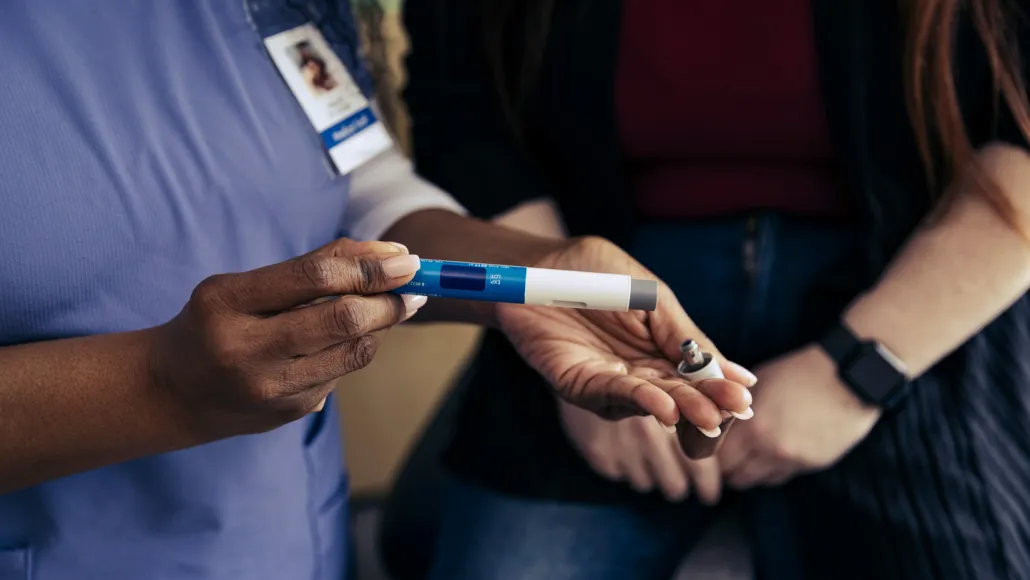Drugs like Ozempic might lower cancer risk
People taking GLP-1 meds tended to be less at risk of developing cancers linked to obesity

GLP-1 drugs, which are often prescribed for weight loss, may make people less likely to develop cancers linked to obesity.
The Good Brigade/Getty Images
Drugs like Ozempic could have anti-cancer powers.
That’s the conclusion of a new study that tracked the diabetes and weight loss medications liraglutide, semaglutide or tirzepatide, which are sold under the brand names Saxenda, Wegovy and Zepbound, among others.
Overall, people on the drugs were less likely to develop cancer than those who had never tried them, researchers report August 21 in JAMA Oncology. This is early evidence that the drugs “may have a potential benefit for the prevention of cancer,” says Serena Jingchuan Guo, a pharmacoepidemiologist at Purdue University in West Lafayette, Ind.
Though these medications, called GLP-1 drugs, are known for their weight loss effects, they offer a bundle of other health benefits, too. They can reduce heart attack risk, may ease migraines and could even curb addiction, scientists have shown.
But the drugs come with a long list of side effects, and researchers are still sorting out potential harms and benefits even as new versions are released, Guo says. Her team wanted to see how the drugs influenced cancer risk — in particular, cancers linked to obesity.
The researchers combed through electronic health records from nearly 90,000 people in Florida who were overweight or obese and tracked the incidence of 14 different cancers over about a decade. These cancers include those of the liver, thyroid, bladder and pancreas. Over this time period, the risk of developing any of the cancers dropped about 17 percent among people on the medications. That may not seem like a drastic change, says Guo, but “even a small alteration of the risk means a potential big impact in the population.”
Take the number of people who tend to get cancer. In Guo’s study, around 1,000 of the more than 40,000 people not on GLP-1s went on to develop the disease. Multiply that ratio by the number of obese or overweight people in the United States — over 200 million — and that’s millions of potential cancer cases. Still, it’s too early to say whether taking GLP-1s could help avert some of these cases, Guo says.
And it’s unclear exactly what the drugs may be doing to curb cancer, says Larry Norton, a medical oncologist at Memorial Sloan Kettering Cancer Center in New York City. The reduced risk Guo’s team observed could be a side effect of weight loss, or the drugs could be acting directly to somehow halt tumor growth. It’s also possible the whole thing is a coincidence, he says. That’s the tricky part with observational studies. You can spot associations, Norton says, but “association and causation are extremely different.”
The full story is probably complex. Guo points out that the medications’ effects are not likely to be one-size-fits-all. Previous studies have already hinted, for instance, that a person’s genetics might predict how much weight they lose on certain drugs. The same could be true for cancer risk. Guo is now expanding her analysis to include nationwide data. She hopes that doctors one day will be able to offer more personalized advice to patients by determining who may benefit most from the medications, and who may be at risk.
Though the meds’ overall effect seemed to be cancer preventative, Guo’s team also saw hints that GLP-1s might increase the risk of kidney cancer. It’s something others have also reported, though Norton says he’s not too worried. “I think we have to keep watching it, but I would not use that as a reason to not use these drugs,” he says.
Scientists still have much to learn about the medications, Norton says, especially as newer and more powerful versions roll out. It’s possible these newer drugs may offer better weight control and cancer prevention benefits, he says. “We’re just at the dawn of this incredibly interesting area of science.”







